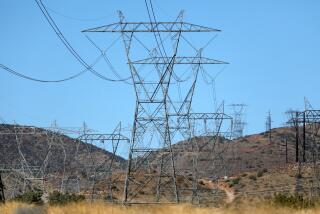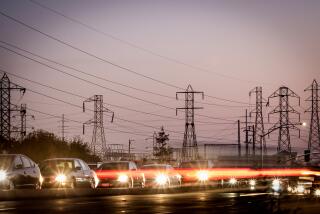FCC OKs $1.50 Hike in Phone Access Charge
- Share via
WASHINGTON — The Federal Communications Commission voted unanimously Thursday to increase the $2 monthly access fee on consumers’ telephone bills to $3.50 over the next two years in a ruling that Chairman Mark S. Fowler called “as important a decision as any this agency has ever made.”
The fee is designed to reduce the costs of connecting consumers to their local phone company now borne by long distance telephone companies. Fowler predicted that the increase eventually will result in long distance rates dropping at least 15%.
Help for Big Firms
It will also help reduce the local connection charges paid by large businesses. The commission said that will entice large businesses to stay with the phone system rather than seeking out cheaper alternatives, such as establishing their own private systems between offices.
“The American public can continue to look forward to affordable telephone service provided by the most modern, efficient, telecommunications network in the world,” as a result of this change and other reforms, said Fowler, who ends almost six years at the commission today.
However, some members of Congress were skeptical.
The vote “does nothing to lessen the pressing need of the American public for an adequate explanation justifying the substantial shift of costs to local consumers,” said Rep. Edward J. Markey (D-Mass.), head of the House subcommittee on telecommunications, consumer protection and finance.
Rep. Ron Wyden (D-Ore.) said he saw no “justification for the increase.” Wyden has sponsored legislation to freeze the monthly fee at $2.
Under the commission ruling, the increase will be implemented in three phases. The access fee will rise 60 cents July 1, another 60 cents in December, 1988, and an additional 30 cents in April, 1989.
An FCC advisory panel had recommended that the full amount be added this summer, but the commission staggered the increases in an attempt to mollify opponents.
Commission members said it was important to bring long distance charges more closely in line with the actual costs of providing that service.
The subscriber access charge helps pay the cost of the wire that connects a customer’s telephone with a phone company’s central office. Part of the cost of that access also is subsidized with long distance rates.
Fee, Rate Reduction Tied
Raising the proportion of the access charge paid by subscribers therefore reduces long distance rates. Since the access fee was imposed in June, 1985, interstate long distance rates have decreased 30%, FCC officials said.
Meanwhile, the percentage of households with telephones has risen from 91.4% in 1983 to 92.4% today, FCC officials said.
“It is plain to see that the introduction of (the $2 access fee) has had no adverse impact on universal service,” Fowler said.
Raising the subscriber access charge also reduces the local connection charges paid by large business users. The FCC has been concerned by the number of large businesses that have been avoiding the charge altogether by building their own telecommunications systems and bypassing the public phone network.
Large Users Called Key
Unless large users are discouraged from bypassing the network, residential rates will have to rise even higher than the planned $3.50 a month to absorb the costs those businesses once paid, Fowler said.
The agency also intends to funnel some of the revenue from the surcharge to a new program called “Link-Up America,” which will pay half, or up to $30, of the telephone installation costs for low-income households.
More to Read
Get the L.A. Times Politics newsletter
Deeply reported insights into legislation, politics and policy from Sacramento, Washington and beyond. In your inbox twice per week.
You may occasionally receive promotional content from the Los Angeles Times.










